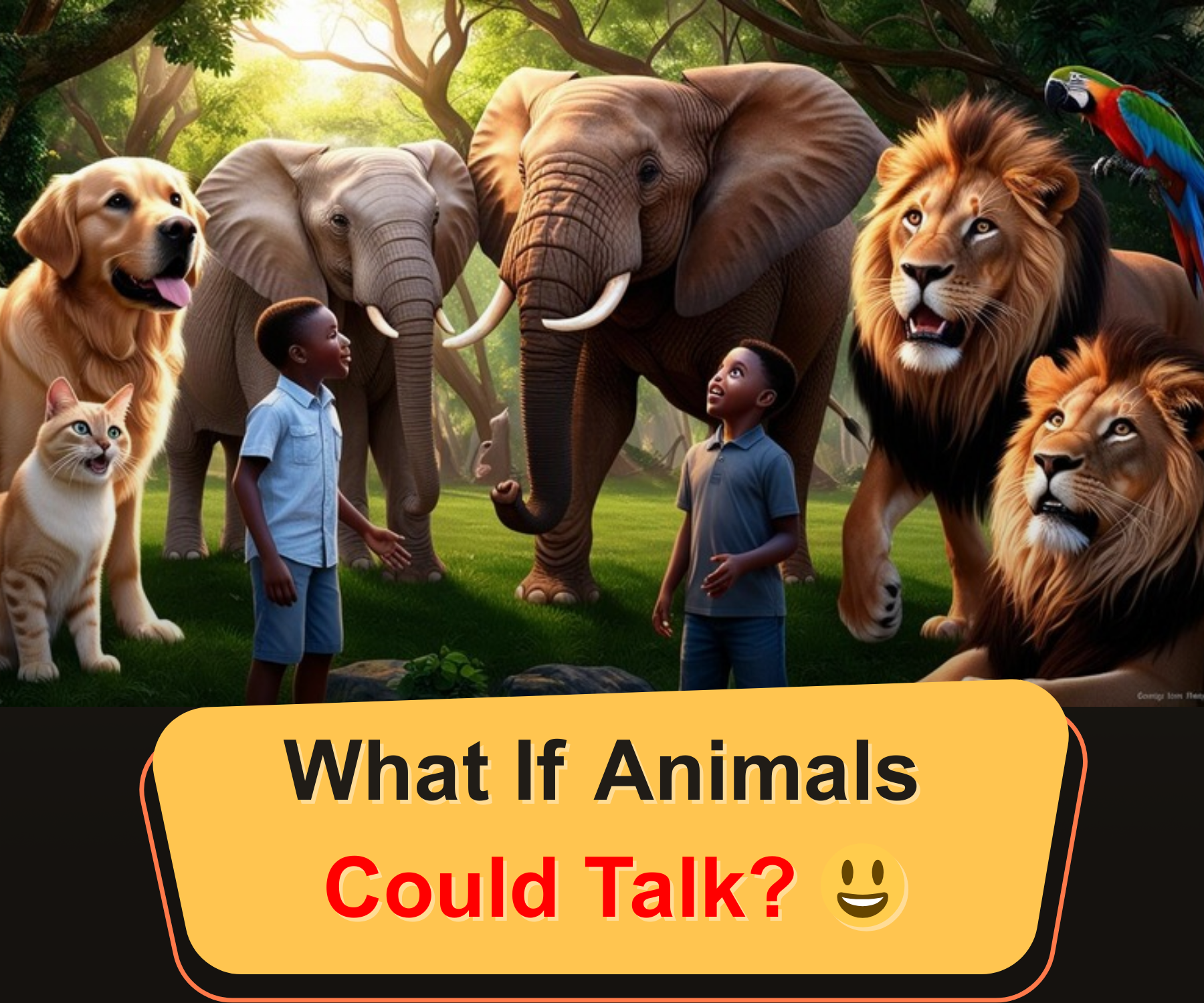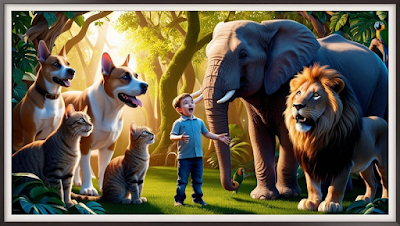What If Animals Could Talk? Exploring a World Where Every Creature Speaks
Imagine you wake up one morning and your dog says, “Good morning, buddy!” Or a crow outside your window warns you about the rain. Sounds crazy, right? But what if animals could actually talk like us? How would it change our world, our habits, and our relationship with them?
Let’s dive into this wild idea and see what could happen if every animal found its voice.
🐾 Introduction: What If Animals Could Talk?
Imagine waking up to your cat saying, “Good morning!” or a bird outside your window commenting on the weather. What if animals could talk just like humans? This idea isn't just a fantasy; it's a thought-provoking scenario that challenges how we view and interact with the animal world.
🧠 Understanding Animal Communication
Animals already have complex ways of communicating. For instance, dolphins use clicks and whistles, bees perform dances to convey information, and dogs bark or wag their tails to express emotions. Scientists have been studying these forms of communication to better understand animal behavior. Projects like CETI (Cetacean Translation Initiative) are using AI to decode whale sounds, aiming to bridge the communication gap between humans and animals. (Researchers are Using AI to Understand what Animals are Saying, Talk to Me)
🌍 Societal Impacts of Talking Animals
If animals could speak our language, society would undergo significant changes:
-
Legal Rights: Animals might demand rights similar to humans, leading to new laws and ethical considerations.
-
Education: Schools could include animal languages in their curriculum, fostering better understanding and coexistence.
-
Employment: Animals might take on roles in various sectors, such as therapy, security, or even customer service.
🐾 Ethical Considerations
The ability of animals to speak would raise ethical questions:
-
Dietary Choices: Would people continue to eat meat if animals could express their feelings about it? (If Animals Could Speak - RobinAge)
-
Animal Testing: The use of animals in research would be scrutinized more heavily if they could voice their consent or objections.
-
Entertainment: Zoos and circuses might face backlash if animals could articulate their discomfort or dissatisfaction.
🌱 Environmental Awareness
Talking animals could provide firsthand accounts of environmental issues: (If all animals could talk, would humanity continue to eat animal meat?)
-
Pollution: Marine animals could describe the effects of plastic waste in oceans.
-
Deforestation: Forest dwellers might share the impact of habitat loss on their communities.
-
Climate Change: Migratory birds could report changes in weather patterns affecting their routes.
🤝 Human-Animal Relationships
Communication would deepen the bond between humans and animals:
-
Pets: Owners could understand their pets' needs and preferences better, leading to improved care.
-
Wildlife Conservation: Conservation efforts could be guided by animals' insights into their habitats and challenges.
-
Conflict Resolution: Human-wildlife conflicts could be addressed through dialogue, reducing harm on both sides.
🧬 Scientific and Technological Advancements
The desire to communicate with animals could drive innovation:
-
Translation Devices: Development of tools to interpret animal languages.
-
AI Integration: Using artificial intelligence to facilitate human-animal conversations.
-
Research Opportunities: Gaining insights into animal cognition and social structures.
📚 Cultural Shifts
Literature, media, and art would reflect the new dynamics:
-
Storytelling: Books and movies might feature animals as central characters with their own narratives.
-
Language Evolution: New dialects or pidgins could emerge from human-animal interactions.
-
Cultural Exchange: Learning from animals' perspectives could enrich human culture and philosophy. (The Strange and Secret Ways That Animals Perceive the World)
🧩 Challenges and Considerations
While the idea is fascinating, it comes with challenges:
-
Privacy: Animals might not want constant interaction with humans.
-
Miscommunication: Differences in context and experience could lead to misunderstandings.
-
Overexploitation: There's a risk of exploiting animals for their knowledge or abilities.
📝 Conclusion
The concept of animals speaking human languages opens up a world of possibilities and challenges. It urges us to reconsider our relationship with the animal kingdom and the environment. While it remains a hypothetical scenario, it highlights the importance of empathy, respect, and coexistence with all living beings.
Note: This article is a speculative exploration and aims to encourage thoughtful consideration of our interactions with animals and the environment.


